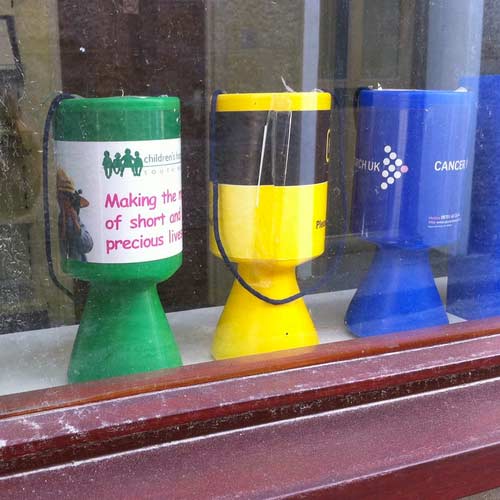There are a number of incentives in place to encourage donating to charity. These are applicable no matter what type of legal entity is making the donation.
Personal Charity Donations
As an employee you can donate through your payroll via the 'payroll giving' scheme. Our payslip calculator provides the payroll giving option so you can estimate this. This will effective make your donation to charity before tax is calculated and thus you can adjust the amount you donate to benefit from the additional 'pre-tax' amount.
An individual can also make donations to 'gift-aid' registered charities and have their donation 'grossed up'. This essentially means that whatever you donate will have a 20 percent (basic rate) top-up via a claim the charity makes directly with the government. On top of this, if your marginal tax rate is above the basic rate, you can apply via your self assessment tax return to claim the difference between the basic rate and your tax rate on the donation amount. You can use our gift aid calculator to show you exactly how much the charity reclaims and if you have grounds for claiming a refund based on your other income in the tax year.
Business Charity Donations
If you are self-employed and use business funds to make a charitable donation, these will be treated as income withdrawn by you. It's a similar situation as an individual making a donation. You will therefore have to pay tax on the withdrawn amount. However, the charity will be able to claim basic rate refund (if they are gift aid registered) and you will also be able to get marginal rate relief if your marginal tax rate is above basic rate.
Limited companies can make donations and receive immediate reduction to their corporation tax liability. This is because charitable donations are an allowable business expense. The charity will have to be an officially recognised charity as listed by HMRC.
Non-cash donations
Other than cash, a business can also provide assets whether they're equipment, property, products they produce or even employees. In all of these cases the monetary equivalent is able to be used on the company books to mark down other profits. For example, with equipment that would otherwise be sold, a donation to charity would allow the zero received value to be used as a capital gains loss to offset against other gains. Products supplied for free will obviously receive no revenue and thus offset profits. Property income otherwise donated can be pro-rated and offset against profits - as can the time employees spend working for charitys pro-bono.

